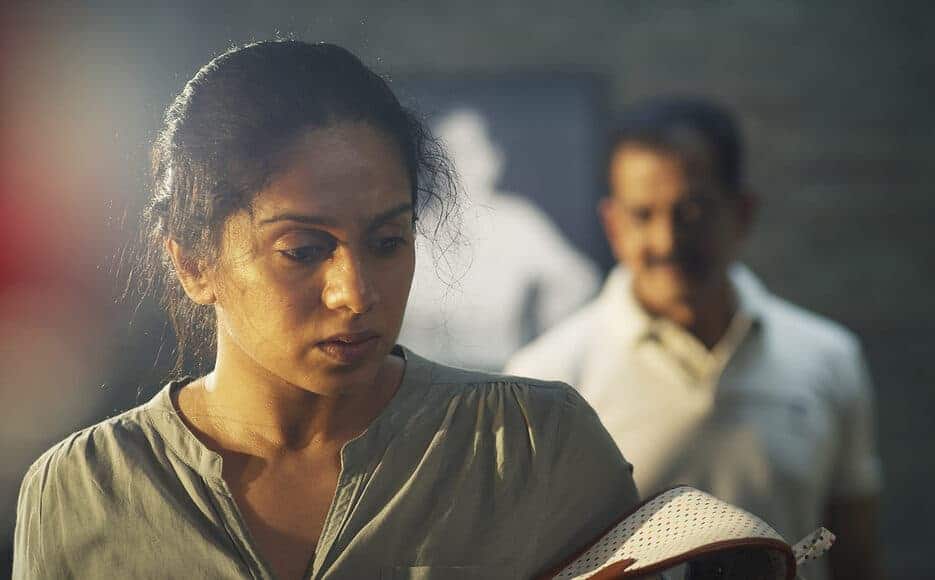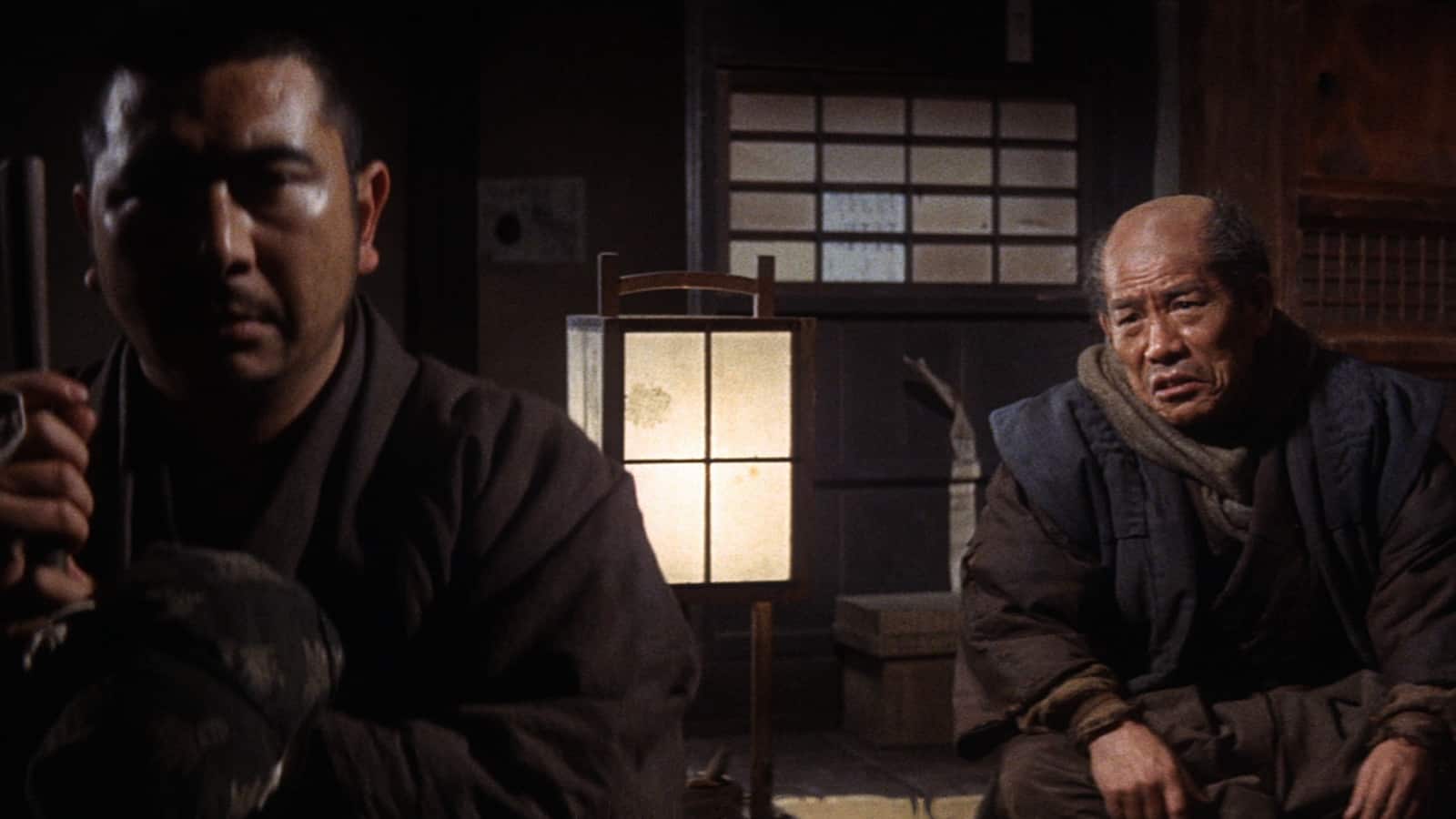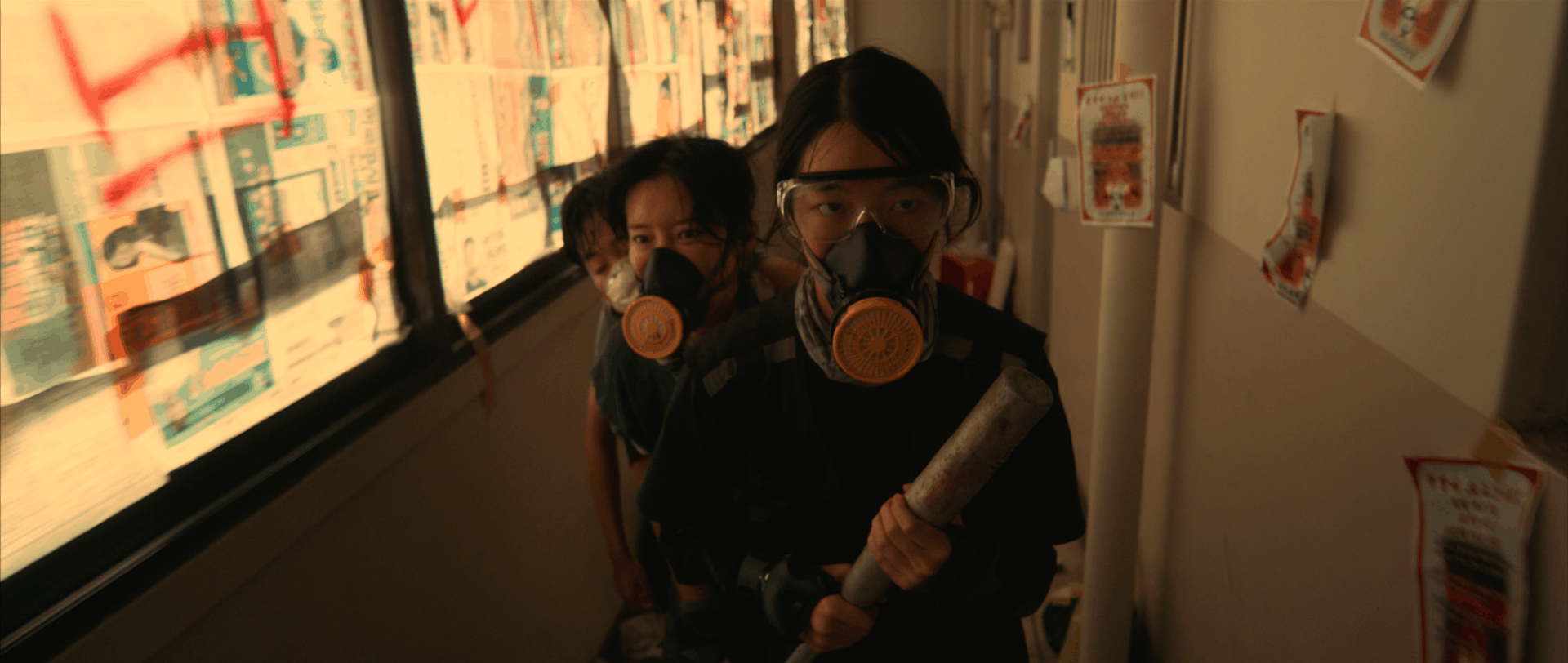(From the film's page) In Hindu theology, Arishadvargas are the six passions of mind or desire: kama (lust), krodha (anger), lobh (greed), moha (attachment), mada or ahankar (pride) and matsarya (jealousy); the negative characteristics which prevent man from attaining moksha or salvation. A fundamental tenet of Kali Yuga. Arvind Kamath uses this concept as a base for a neo-noir/thriller that also unfolds as a human drama, through a rather complex storyline.
“Arishadvarga” is screening at London Indian Film Festival

The film begins in the middle of the story, when Ashok Kalburgi, a strict and scary policeman, helps two other policemen catch Anish, a man who has been trying to escape from them. Then, through a flashback, we watch the man caught, entering a mansion after receiving a call from a woman, only to find a dead body inside the house, along with two other people that have been also drawn there, an actress, Saakshi Rao and a petty thief. As we watch the man trying to explain an impossible situation, we also learn about the two other characters, through more flashbacks. Soon, the victim is revealed to be Manjunath Bhat, a film producer, and another storyline is added to the narrative, that of his and his much younger wife's, Kruthi Bhat. The two have been trying to have children but failing, and eventually, in their despair, asked Anish, who is an aspiring actor doubling as a male prostitute to “help”. Back in the present, Ashok has begun investigating the case, uncovering more and more secrets.
Arvind Kamath directs a film that uses a rather complex and elaborate story to make a number of comments, regarding the six passions I mentioned in the prologue, and through them, a number of social ones, mostly revolving around the place of woman in Kannada society. Unfortunately, the flashbacks inside the flashbacks, the many back and forths in the storyline and the number of plot twists, do not allow me to comment much on the script, since further analysis would ruin the impact the revelations have. What I can say though, is the film mostly revolves around two arcs, the complex relationship between Manjunath and Kruthi, where the one who holds the upper hand is repeatedly changed, and Ashok's investigation of the murder. Through this narrative approach, Kamath succeeds in retaining the interest for the majority of the 135 minutes of the film, at least to the spectator that manages to stay focused and follow the complex storyline, although at times I felt that the story is somewhat far-fetched.
The noir aesthetics are quite obvious in the film, particularly through the presence of the “chaotic good”, rarely speaking cop and the woman who seems innocent but proves something completely different, with Nanda Gopal and Anju Alva Naik in the respective roles being exceptional. The same, both in acting quality and as a noir element applies to Avinash, who is excellent as a man in charge whose decisions turn his life upside down. The fact that none of the characters is actually utterly likeable, also adds to the style.

Balaji Manohar's cinematography, which mostly takes place in interior settings, occasionally emitting a sense of claustrophobia, also points towards the noir path, with him making an excellent job of portraying the various settings of the film with realism. The editing credits include Bharath Chandrashekar, Arvind Kamath, Bina Paul and Divya Raghuram, and I can easily say, with the way the narrative unfolds, that this number of people was a necessity, due to the many story arcs and the back and forths in the timeline. Unfortunately, the effort resulted in a film that is too complex for its own good, in an effort to include everything Kamath wanted, in essence dulling the impact of its comments. Furthermore, with the amount of complexity and the duration of the movie, it becomes rather difficult to follow it for the whole time, and some additional “trimming” from the editors would definitely benefit the movie. The music on the other hand is excellent, with a number of tracks of different style adding to the aesthetics of the scenes they accompany, while heightening the entertainment the film offers. The prowess in sound also extends to the various ringtones, with the one of Anish's phone being delightfully ironic.
“Arishadvarga” has a lot of merits, particularly for the overall film noir atmosphere and the acting, but the overly complex script and the directorial/editing approach make the narrative difficult to follow, at least for the whole of its duration. The quality is there, however, it is just a bit difficult to discover it.















